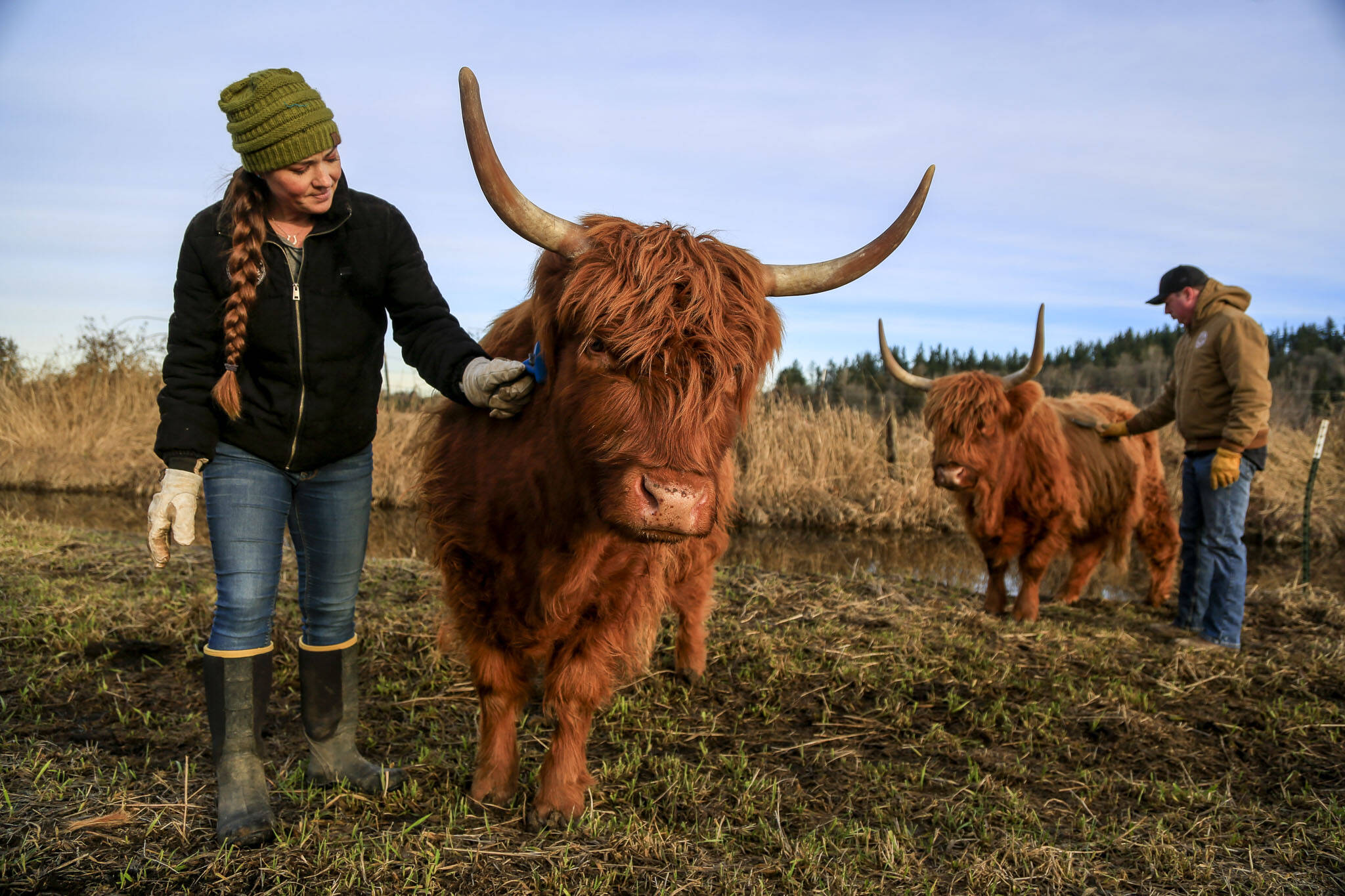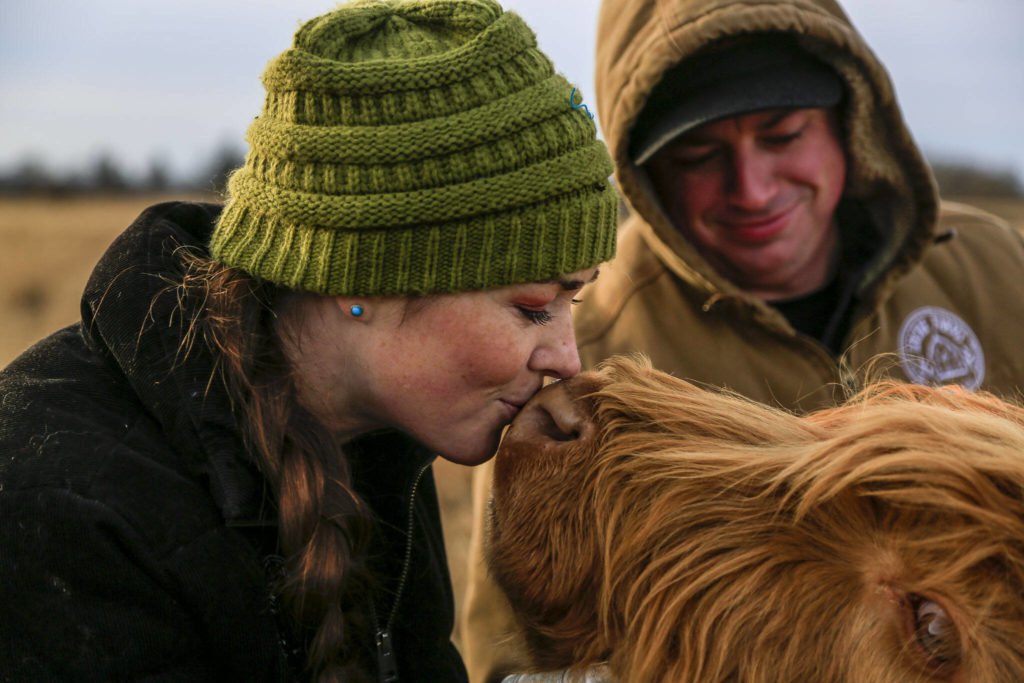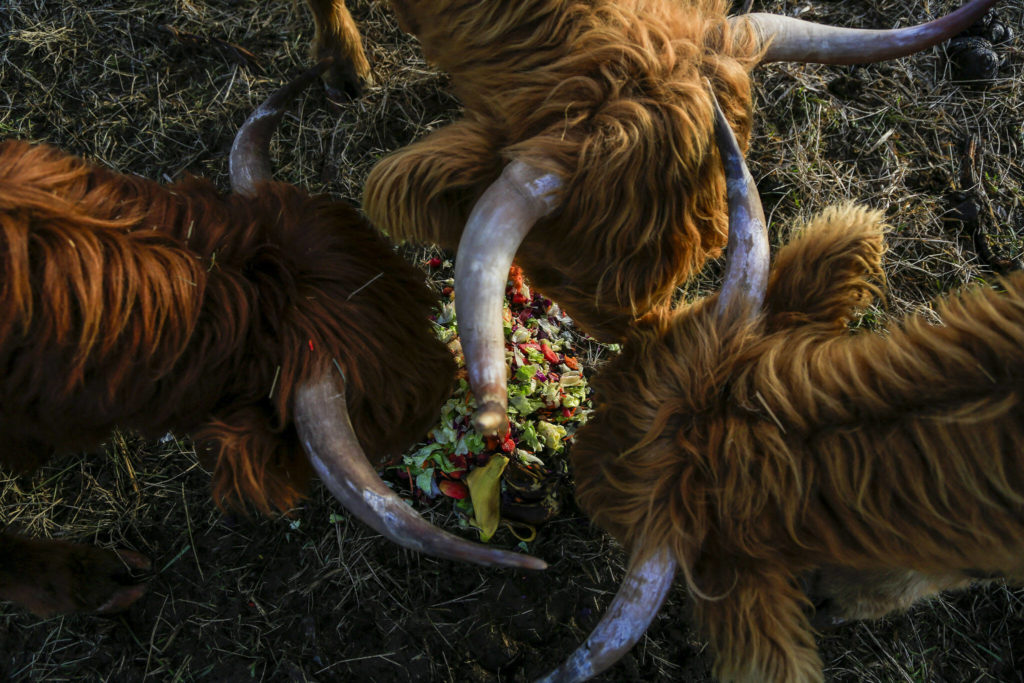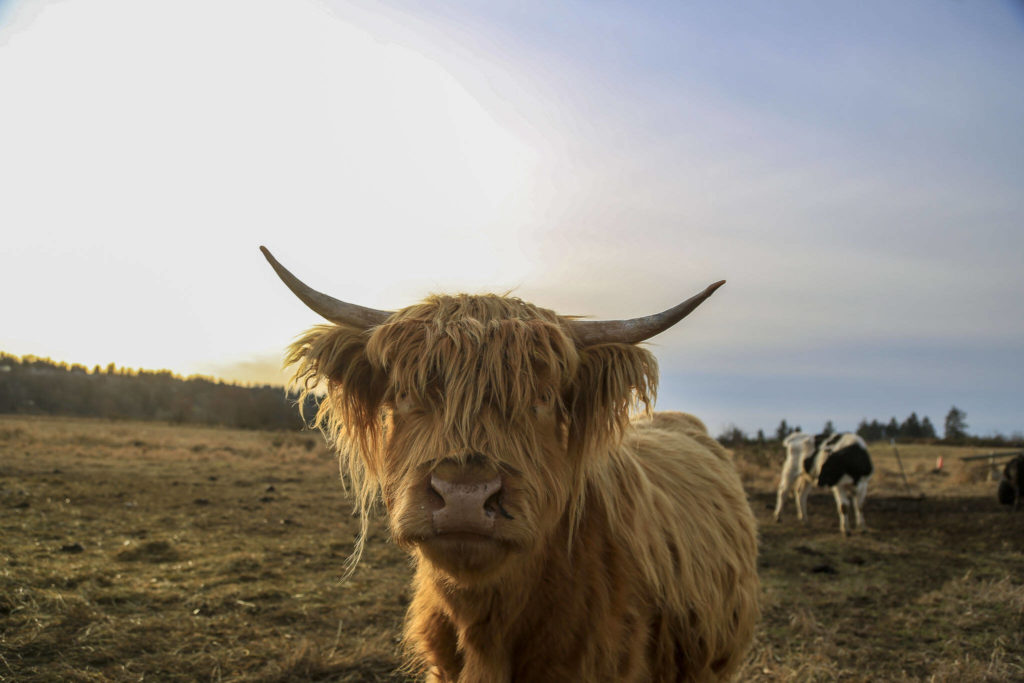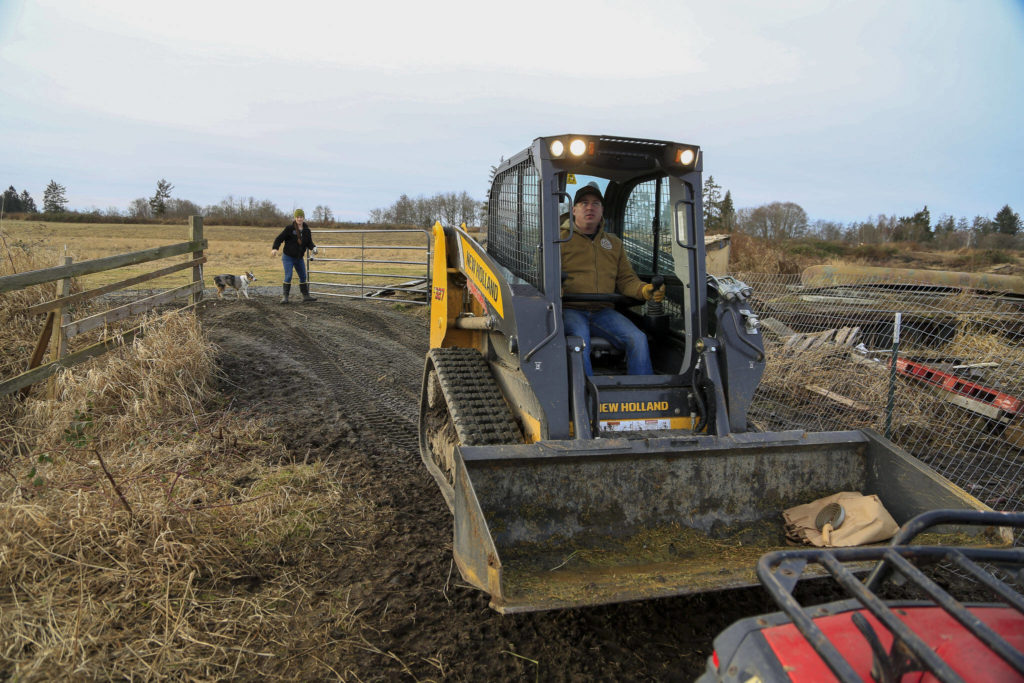LAKE STEVENS — Two years after starting Luckie Farms, Tara and Scott Luckie are raising about 40 cattle, leasing land to a flower farmer and planning an events venue in a historic dairy barn.
The couple, originally from Seattle, had dreamed of working with their hands and with animals. Tara Luckie said her mom came from a farming background and she always “felt like a farmer” at heart.
Many are attracted to farming because of the lifestyle or desire to grow food. Those goals collide with reality: the challenge to run and sustain a farm in a high-risk and challenging industry.
The Luckies said the program Cultivating Success helped prepare them for the real world of farming. Currently offered through the Washington State University Snohomish County Extension, the courses have helped train dozens of beginning farmers.
“I felt like it gave people kind of like a reality check,” said Tara Luckie, 38, who previously ran an environmental nonprofit. “If you’re going to (farm), here’s all of the things you’re going to have to face. I think that helps people make a better decision of what they want to invest their time and money in.”
Agricultural Entrepreneurship, one of two classes in the program, will be offered on Tuesday evenings Jan. 10 through March 28 via Zoom. The 12-week course will cover business planning, risk management, financing, marketing and more. The other course, Whole Farm Planning, is held in the fall.
“It’s a challenge running a small farm and running a profitable small farm,” said Kate Smith, a staff member with the WSU Skagit County Extension and lead coordinator for Cultivating Success. “It takes additional attention to not only be thinking what are you going to grow and the details of growing it, but how are you going to sell it? And how will you make sure you can make a profit to support your family and carry on farming?”
She added training programs for newcomers are important as older generations retire and their children opt to leave the family farm.
As more have started small farms in the past decade, the demand for Cultivating Success has grown.
“When I first started, I felt happy if I had 10 to 15 farms that would sign up,” said Kate Ryan, agriculture program coordinator with the Snohomish County Extension who helped found the program. “Probably about 10 years ago, that number started to crank up.”
The course started in 2001. Classes shifted online amid the pandemic, which Ryan felt has widened the program’s reach.
It’s now held as a collaboration between extensions across the state. In addition to Zoom classes, students take field trips and meet in person with other students in their area, Smith said.
Tara Luckie completed the courses in fall 2020 and winter 2021, sharing what she learned with husband, Scott, 37. The two had purchased a 75-acre piece of farmland west of Lake Stevens in April 2020.
Cultivating Success helped the couple create a blueprint for their future farm, and in particular, “helped us narrow what we want,” Scott Luckie said.
“It gives you a bird’s eye view of all these different types of farming and a good feel of what’s going to work for you,” Tara Luckie said.
For example, the couple decided to raise cattle rather than grow vegetables. They learned about meat industry regulations and how to get a butcher. They visited a local beef operation to see rotational grazing and have implemented the practice on their own farm.
The two selected the Scottish Highland cattle breed because they admired its long horns and a shaggy coat. Tara Luckie said the breed is also friendly and can withstand wet and cold conditions. The farm has a herd of 21 Highland cattle, with plans to sell the animals as pets and raise some for beef. Their neighbor also raises about 20 cattle on their land.
They are also leasing 8 acres to a local farmer for tulips and other flowers.
The last piece of Luckie Farms will be an events space in the 1922 barn. The goals are to bring in extra income and create a venue for community events and classes.
Tara Luckie said Cultivating Success showed her the different resources available to farmers.
“I felt like people just embraced us and asked, ‘What do you want to learn? Here’s a bunch of resources,’” she said. “And if we had any issues, people were there to support us.”
Sign up for Cultivating Success
The 12-week course is offered online via Zoom Tuesdays from 6 to 8:30 pm. Jan. 10 through March 28. Also offered with Spanish interpretation.
Curriculum features a full lineup of speakers, including business professionals, marketing specialists, and successful farm owners with a special emphasis on the financial, risk and legal issues unique to farm-based businesses.
Participants are guided in developing a business plan they can use to help finance and grow a new enterprise or expand an existing farm-based business.
Cost is $200 per farm or family. Scholarships are available for military veterans or for any student for whom the course fee is a barrier.
To register or learn more, visit CultivatingSuccessWA.org/agricultural-entrepreneurship or contact Kate Smith at 360-395-2363 or kate.smith@wsu.edu.
Jacqueline Allison: 425-339-3434; jacqueline.allison@heraldnet.com; Twitter: @jacq_allison.
Talk to us
> Give us your news tips.
> Send us a letter to the editor.
> More Herald contact information.
